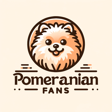Within the realm of canine behavior, the tendency of Pomeranians to consume feces can present perplexing challenges for pet owners. This behavior, known as coprophagia, raises concerns about the health and well-being of these furry companions.
Understanding the underlying causes, potential risks, and viable solutions is paramount in addressing this issue effectively. By shedding light on the factors contributing to this behavior and offering practical strategies to curb it, pet owners can navigate this delicate topic with the care and expertise it demands.
Reasons for Pomeranians Eating Poop
Pomeranians may engage in the behavior of eating poop due to various reasons, including nutritional deficiencies in their diet, curiosity, habit formation, and unaddressed behavioral issues. Inadequate intake of essential nutrients can prompt dogs to seek missing elements in feces.
Curiosity, especially common in puppies exploring their environment, may lead to sampling feces. Habit formation can develop if the behavior goes unchecked, becoming a normal routine. Unaddressed behavioral issues, such as anxiety or boredom, can manifest in coprophagia.
Understanding these reasons is crucial in addressing and preventing this behavior in Pomeranians, ensuring their health and well-being. Owners should observe their pet’s diet, provide mental stimulation, and seek professional guidance if needed.
Prevention and Training Techniques
To effectively address and prevent the behavior of Pomeranians eating poop, implementing specific prevention and training techniques is essential.
Designating a specific bathroom area for your Pomeranian can help in controlling where they eliminate and reducing the likelihood of them consuming feces. Close monitoring in areas with other dogs is important to prevent worm infestation.
Using safe supplements or deterrents, such as Naturvet Coprophagia Deterrent Plus Breath Aid Soft Chew, can discourage poop consumption. Adolphs Meat Tenderizer, when used as a food additive, can also help in deterring this behavior.
Additionally, redirecting your Pomeranian’s attention and rewarding good behavior can aid in breaking the habit of poop eating and promoting healthier habits.
Health Risks and Concerns
Health risks and concerns associated with the consumption of feces by dogs include potential exposure to parasites and bacteria, leading to various illnesses and health complications. Dogs that ingest feces are at risk of contracting parasites such as roundworms, hookworms, and tapeworms, which can cause gastrointestinal issues and other health problems.
Bacteria present in feces, such as Salmonella and E. coli, can also lead to infections and serious illnesses in dogs. Additionally, repeated consumption of feces can result in nutritional deficiencies if the dog is not receiving adequate nutrients from its regular diet.
It is crucial for pet owners to address and correct this behavior promptly to safeguard their Pomeranian’s health and well-being.
Environmental Factors and Cleanliness
Maintaining a hygienic environment for your canine companion is paramount in fostering their overall well-being and safety. Clearing the yard of feces before allowing your Pomeranian to play is essential to prevent poop consumption. Using water to dissolve feces into the soil for quick cleanup can also deter your pet from eating it.
Keeping designated bathroom areas clean and poop-free helps reinforce good habits. Preventing access to feces in public places is crucial to avoid potential health risks. By ensuring a clean and safe environment for your Pomeranian, you can significantly reduce the chances of them engaging in poop-eating behavior.
Supplement and Deterrent Options
When addressing the issue of Pomeranian poop eating, exploring effective supplement and deterrent options is crucial in mitigating this behavior and promoting the overall well-being of your pet.
Naturvet Coprophagia Deterrent Plus Breath Aid Soft Chew is a recommended product known to discourage dogs from consuming feces.
Adolphs Meat Tenderizer, when unseasoned and without MSG, can be used as a food additive to make feces less appealing to your Pomeranian.
Clapping hands and redirecting attention can also help deter this behavior.
Additionally, ensuring a balanced and nutritious diet for your Pomeranian can prevent nutrient deficiencies that may drive them to eat feces.
Seeking veterinary advice can further provide guidance on effective deterrent options tailored to your pet’s specific needs.
Seeking Veterinary Advice
Seeking professional guidance from a veterinarian is recommended for tailored advice on effective deterrent options to address Pomeranian poop eating behavior. Veterinarians can provide personalized recommendations based on the specific needs and health considerations of your Pomeranian.
They can conduct a thorough examination to rule out any underlying health issues that may be contributing to this behavior. Additionally, veterinarians can suggest appropriate supplements or deterrent products that are safe and suitable for your pet.
Conclusion
In conclusion, understanding the reasons behind Pomeranians engaging in poop-eating behavior is essential for pet owners to implement effective prevention strategies and ensure the well-being of their beloved companions.
By addressing nutritional deficiencies, habit formation, environmental influences, and utilizing safe deterrent options, pet owners can mitigate the risks associated with coprophagia.
Maintaining a clean and safe environment for Pomeranians is paramount in promoting their health and overall quality of life.
